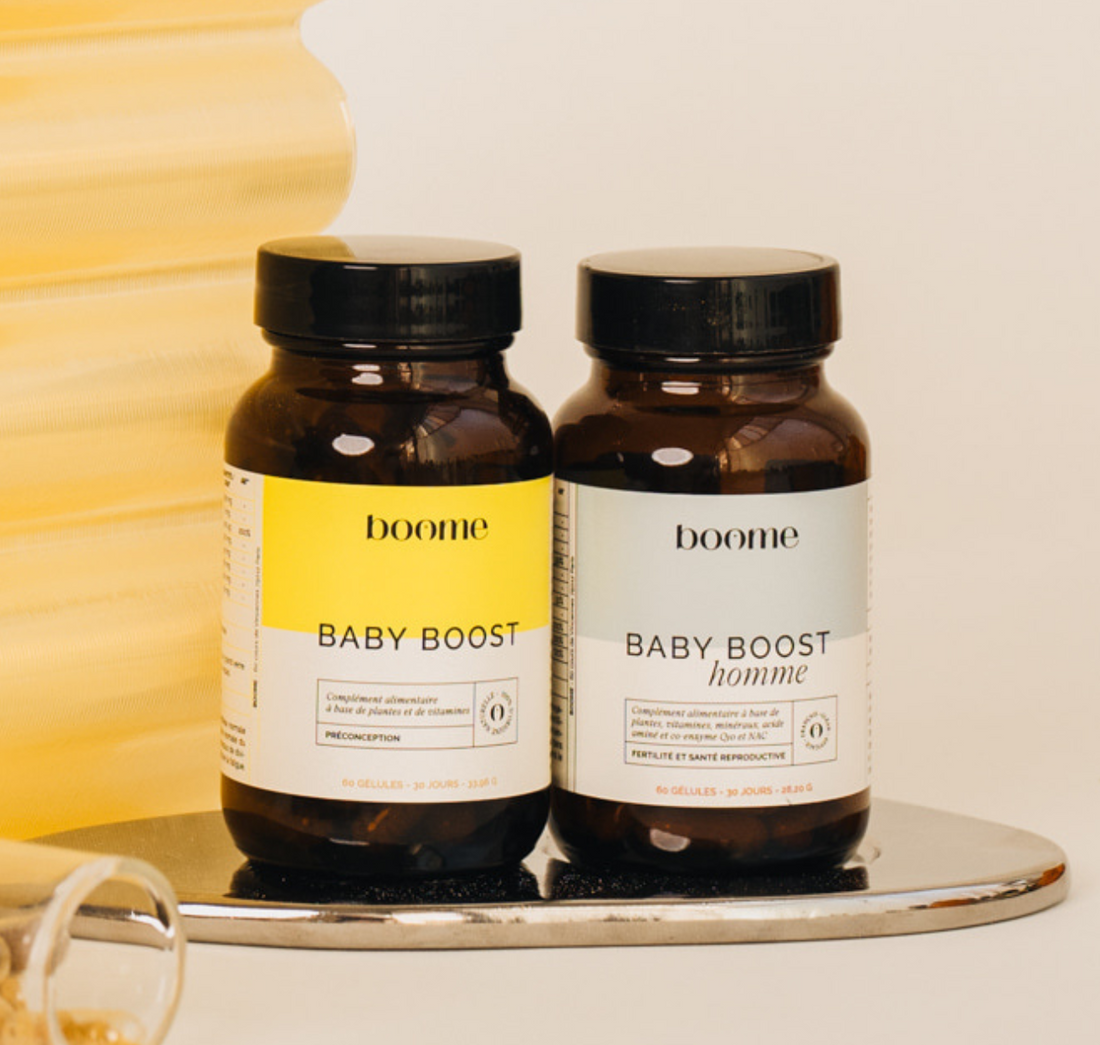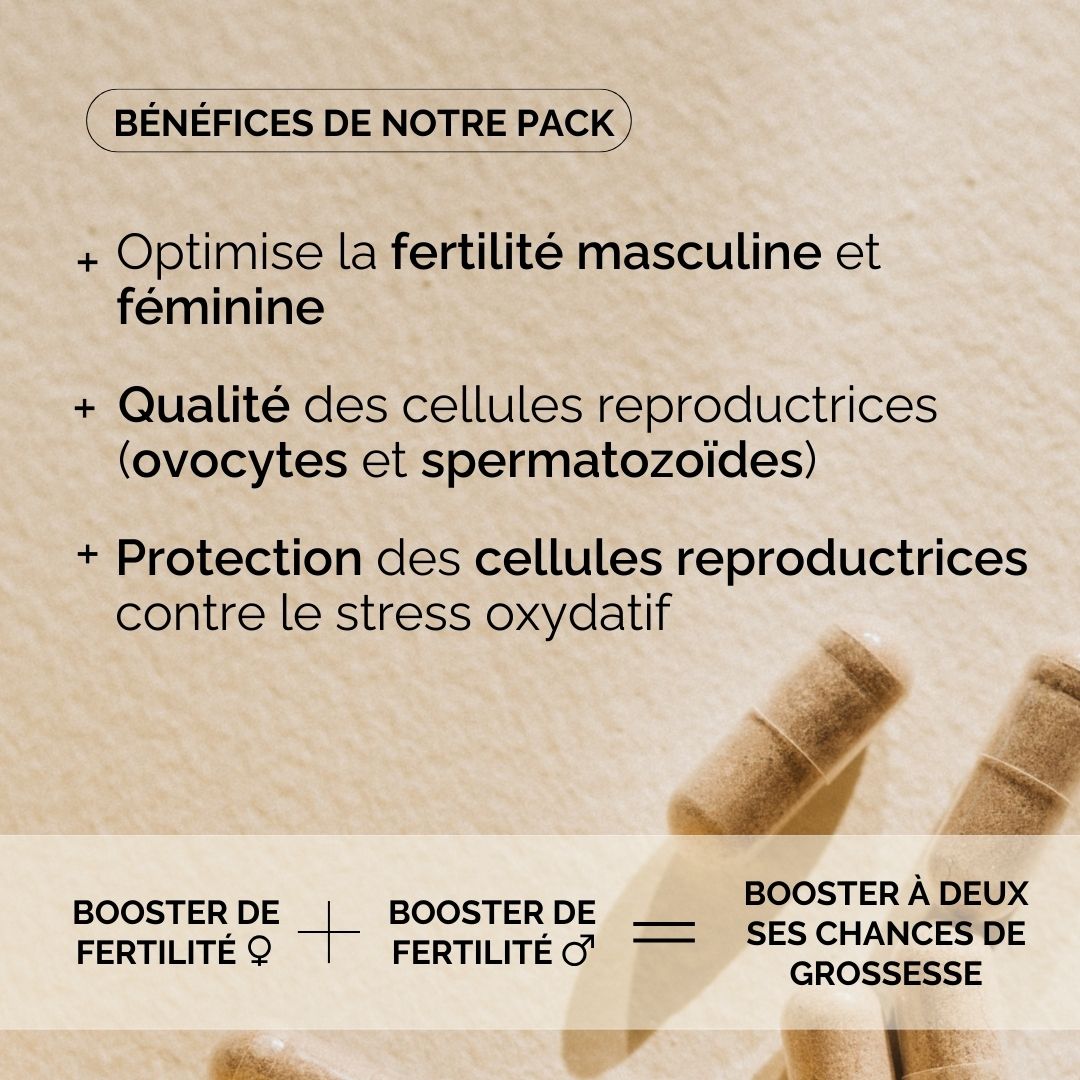
We wish PCOS was the name of the latest trendy cardio class, but those are the much less fun initials that stand for "polycystic ovary syndrome" (Syndrome dont On se Passerait Karrément). Also known as Stein-Leventhal syndrome or polycystic ovarian disease, it's a disease with multiple effects that affects the ovaries and can disrupt the fertility of women who suffer from it. Let's take a look.
What is PCOS, Polycystic Ovary Syndrome?
Still poorly understood and poorly diagnosed (some women remain unaware of their condition for years), polycystic ovary syndrome affects many women, but is still not easy to identify - particularly because symptoms are not always present.
Due to a hormonal imbalance of ovarian or pituitary origin (a gland that produces our hormones necessary for the maturation of oocytes, LH and ), this disease affects the endocrine system and disrupts the menstrual cycle. In particular, it increases the production of hormones such as:
- testosterone;
- LH (luteinizing hormone)
While producing androgen is normal (it contributes to our mood, our libido, etc.), producing too much of it, on the other hand, leads to very unpleasant disorders ( spoilers: see “symptoms” paragraph ).
Please note :
- The name of this pathology refers to the proliferation of small cysts around the ovaries, without a dominant follicle. This is visible during an ultrasound.
- It is the most common endocrine disease in women , affecting approximately 1 in 10 women of reproductive age (adolescence to menopause).
- It is the leading cause of female infertility .
Causes of PCOS
It is not possible—as with most diseases—to find only one cause for PCOS; many factors come into play. Genetics plays its role since predisposition genes have indeed been identified (around twenty), but they do not explain everything. Sometimes you have to look for family history (don't hesitate to ask the women in your family). Finally, even if no study proves it to date, endocrine disruptors are suspected of having an impact on this disorder.
What are the symptoms of PCOS?
Not all women affected by polycystic ovary syndrome experience the same symptoms. And because not all of these symptoms are always present, diagnosis becomes more complex. However, this hormonal disorder is characterized by excessive production of testosterone (usually produced in small amounts in the female body). It is this elevated level that leads to numerous dysfunctions, which are difficult for women to experience in their daily lives.
1. Gynecological symptoms
- Irregular or less frequent periods (the doctor calls this spaniomenorrhea), or even an absence of periods (in which case he will call it amenorrhea).
- We also speak of anovulatory cycles, during which ovulation does not occur, thus preventing the possibility of becoming pregnant.
2. Bodily symptoms
- excess hair growth (hirsutism);
- acne problems;
- hair loss;
- of obesity.
3. Metabolic symptoms
PCOS is also characterized by metabolic syndrome, such as:
- Insulin resistance (although to date, doubts remain as to whether this resistance is a consequence or a cause).
- The risk of diseases such as type 2 diabetes, or high cholesterol.
Is it possible to get pregnant with PCOS?
The link between PCOS and infertility is common (PCOS causes, as we have seen, menstrual cycles during which ovulation is impossible) but nevertheless not systematic. When fertility problems occur, they are of ovulatory origin.
Unfortunately, pregnancies for women with PCOS often have more complications: higher late pregnancy rates, risk of gestational diabetes, prematurity, perinatal mortality, preeclampsia, etc. And miscarriages are more frequent - in particular due to higher insulin levels. But don't panic unnecessarily: thanks to medical advances, these difficulties and complications surrounding fertility do not prevent you from getting pregnant! It may just take a little more patience, insight, and preparation.
If in doubt, don't hesitate to consult a doctor or gynecologist as soon as possible to make a diagnosis. They may be able to prescribe a hormonal assessment to measure certain hormone levels, such as:
- follicle-stimulating hormone (FSH);
- luteinizing hormone (LH).
And then prescribe you ovarian stimulation treatment.
If you know you have PCOS, consider making a few small adjustments to your daily life now; these can greatly help prepare your body for pregnancy. Regular physical activity, a conscious and balanced diet, and good sleep are just some of the simple changes in your lifestyle that can have a physical and mental impact on fertility. And, of course, they help keep you healthy!
You can also start taking folic acid supplements to prevent possible fetal malformations and reduce the risk of miscarriage.
And to increase your chances of pregnancy if you're planning a baby, don't hesitate to take a course of dietary supplements. Which one, for example? We have a little idea for you... our fertility vitamins for women are ideal for providing the vitamins and minerals you'll need more than ever!
BONUS: Discover the benefits of vitamin D for pregnancy .










